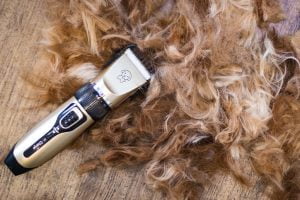
Teeth Cleaning and Oral Care: Dental hygiene practices for dogs, including tooth brushing, dental chews, and professional dental care options.

Introduction
Maintaining proper dental hygiene is vital for your dog's overall health and well-being. Just like humans, dogs are susceptible to dental issues, such as plaque buildup, tartar formation, and gum disease. In this comprehensive guide, we will explore essential dental hygiene practices for dogs, including tooth brushing, dental chews, and professional dental care options. Gain valuable insights from The Rich Groomer to ensure your dog's teeth stay clean and healthy.
Importance of Dental Hygiene for Dogs
Proper dental care for dogs offers numerous benefits beyond fresh breath and a sparkling smile. Let's delve into the significance of maintaining good dental hygiene:
Prevention of Dental Disease:
Regular dental care helps prevent dental diseases such as periodontal disease, gingivitis, and tooth decay. These conditions can lead to pain, tooth loss, and potential infections that may affect your dog's overall health.
Fresher Breath:
Bad breath is often an indication of oral health issues. By maintaining proper dental hygiene, you can significantly improve your dog's breath and create a more pleasant environment for both you and your furry friend.
Overall Health Benefits:
Oral health is closely linked to your dog's overall health. Dental diseases can impact various body systems, including the heart, liver, and kidneys. By prioritizing dental hygiene, you contribute to your dog's overall well-being.
Dental Hygiene Practices for Dogs
Implement the following dental hygiene practices, recommended by The Rich Groomer, to ensure optimal oral health for your dog:
Tooth Brushing:
Regular tooth brushing is the foundation of proper dental care for dogs. Use a soft-bristled toothbrush and a dog-specific toothpaste (avoid human toothpaste) to brush your dog's teeth. Aim for a daily brushing routine, but if not feasible, aim for at least three times a week.
Proper Tooth Brushing Technique:
Introduce tooth brushing gradually to your dog. Start by allowing them to lick the toothpaste off your finger, then gradually progress to using a toothbrush. Gently brush in circular motions, focusing on the gum line and outer surfaces of the teeth. Be patient and offer positive reinforcement during the process.
Dental Chews and Treats:
Dental chews and treats designed specifically for promoting oral health can be beneficial additions to your dog's dental care routine. Look for products with the Veterinary Oral Health Council (VOHC) seal, indicating they meet specific oral health standards.
Water Additives:
Water additives designed for oral care can help maintain your dog's oral health. These additives are added to your dog's drinking water and work to reduce plaque and tartar formation.
Regular Veterinary Dental Examinations:
Schedule regular dental check-ups with your veterinarian. Professional dental examinations allow for the early detection of dental issues and the implementation of necessary treatments or cleanings.
Professional Dental Care Options
For more advanced dental care needs, consider the following professional options:
Professional Dental Cleanings:
Professional dental cleanings performed by a veterinarian or a trained veterinary dental hygienist are recommended for optimal oral health. These cleanings involve scaling to remove tartar and plaque, followed by polishing to smooth the tooth surfaces.
Dental X-Rays:
In some cases, dental X-rays may be necessary to evaluate the health of your dog's teeth below the gum line. X-rays can reveal hidden problems, such as tooth root infections or fractures, that are not visible during a regular dental examination.
Frequently Asked Questions
No, human toothpaste contains ingredients that are not safe for dogs. Use a toothpaste specifically formulated for dogs, as they do not contain harmful substances and are safe to swallow.
It’s best to use brushes specifiIf your dog resists tooth brushing, introduce the process gradually and offer positive reinforcement. Start with just touching their gums and teeth with your finger, then gradually progress to using a toothbrush.cally designed for dogs. Human brushes may have bristles that are too harsh for your dog’s skin and coat, potentially causing discomfort.
The frequency of professional dental cleanings depends on your dog’s individual needs. In general, most dogs benefit from a professional cleaning once a year, but some may require more frequent cleanings based on their oral health.
Conclusion
Maintaining proper dental hygiene for dogs is essential for their overall health and well-being. By implementing effective dental care practices, such as tooth brushing, dental chews, and regular veterinary check-ups, you can ensure your dog maintains optimal oral health. Remember, prevention is key, so prioritize your dog's dental care to prevent dental diseases and promote a happy and healthy smile.

